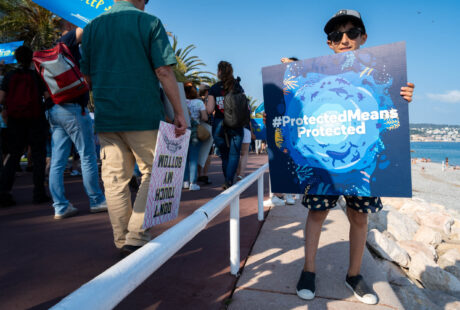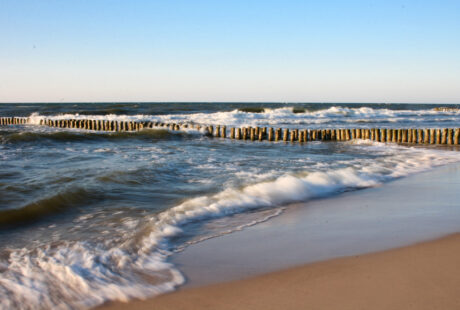Today, environmental organisations all over Europe join forces in responding with great concern to a newly released report from the Scientific, Technical and Economic Committee for Fisheries (STECF). Once again the annual report reveals an alarming lack of progress from the EU in implementing the reformed Common Fisheries Policy (CFP) and honoring the fast approaching deadline to end overfishing by 2020 (1).

“When the STECF experts say European Ministers and Governments are behind schedule on ensuring an end to overfishing, it’s not just time to listen, it’s time to act,” said Gonçalo Carvalho, Executive Coordinator at Sciaena.
“The EU’s own legally binding deadline for achieving sustainable fishing levels for all fished stocks is just around the corner, but still 41% of the assessed stocks in the Northeast Atlantic are subject to overfishing. That’s not good enough if we are serious about safeguarding the future of our fisheries and oceans,” said Rebecca Hubbard, Program Director at Our Fish.
As part of the 2013 CFP reform, all EU member states signed up to a legal requirement to end overfishing by 2020 at the latest (2) and while STECF notes that stock status in the Northeast Atlantic has significantly improved since 2003, the rate of progress has slowed in the last few years. The situation in the Mediterranean and Black Sea remains dire. Overall, the results this year confirm that many stocks remain overfished and progress achieved until 2017 has been too slow to ensure that by 2020 all stocks are fished at or below levels that can deliver the maximum sustainable yield.
“We strongly encourage the European Commission to propose fishing limits in line with scientific advice on sustainable fishing levels. As guardian of the EU treaties, the Commission should lead on fast and decisive progress to meet the 2020 deadline to end overfishing”, said Jenni Grossmann, Science and Policy Advisor at ClientEarth.
“Member States must act on today’s report and show they are serious about safeguarding European fish stocks and broader marine ecosystems by setting sustainable fishing limits for 2020. If Governments allow for continued overfishing in the coming years, they will jeopardise not only the future of Europe’s fish stocks but the health of the ocean that we all depend on,“ said Andrea Ripol, Fisheries Policy Officer at Seas At Risk.
STECF advises the European Commission on fisheries management and is requested to release annual reports on the EU’s progress in achieving the Maximum Sustainable Yield objectives in line with the CFP (3).
Notes:
- The STECF report “Monitoring the performance of the Common Fisheries Policy (STECF-Adhoc-19-01)” covers the Northeast Atlantic and adjacent seas (FAO reg 27) and the Mediterranean and Black Sea (FAO 37). According to this report, 41% of the assessed stocks in the Northeast Atlantic were still subject to overfishing in 2017 (the most recent year for which this information is available), compared to 43% in 2016, and 37% of stocks were still outside safe biological limits (for those with sufficient data to assess stock health). Moreover, based on information for 2016, in the Mediterranean “only around 13% (6 stocks) are not overfished, the majority are overfished” (p. 8).
- The reformed Common Fisheries Policy (CFP) includes the fundamental objective to progressively restore and maintain fish stocks above sustainable levels, specifically above levels capable of producing the maximum sustainable yield (‘MSY’, see Article 2(2) of the CFP Basic Regulation, Regulation (EU) No 1380/2013 of the European Parliament and of the Council of 11 December 2013). For the purpose of achieving this ‘MSY objective’, the law says that the MSY exploitation rate shall be achieved by 2020 at the latest for all stocks. Moreover, the CFP is clear that measures should be taken in accordance with the best available scientific advice (Article 3(c) of the CFP Basic Regulation).
- Article 50 of the CFP Basic Regulation stipulates: “The Commission shall report annually to the European Parliament and to the Council on the progress on achieving maximum sustainable yield and on the situation of fish stocks, as early as possible following the adoption of the yearly Council Regulation fixing the fishing opportunities available in Union waters and, in certain non-Union waters, to Union vessels.” As part of this, the STECF is annually requested to report on “progress in achieving MSY objectives in line with the Common Fisheries Policy”. The Scientific, Technical and Economic Committee for Fisheries (STECF) was set up in 1993, and STEFC members “are nominated by the European Commission from highly qualified scientific experts having competence in these fields”.
Posted on: 10 April 2019



